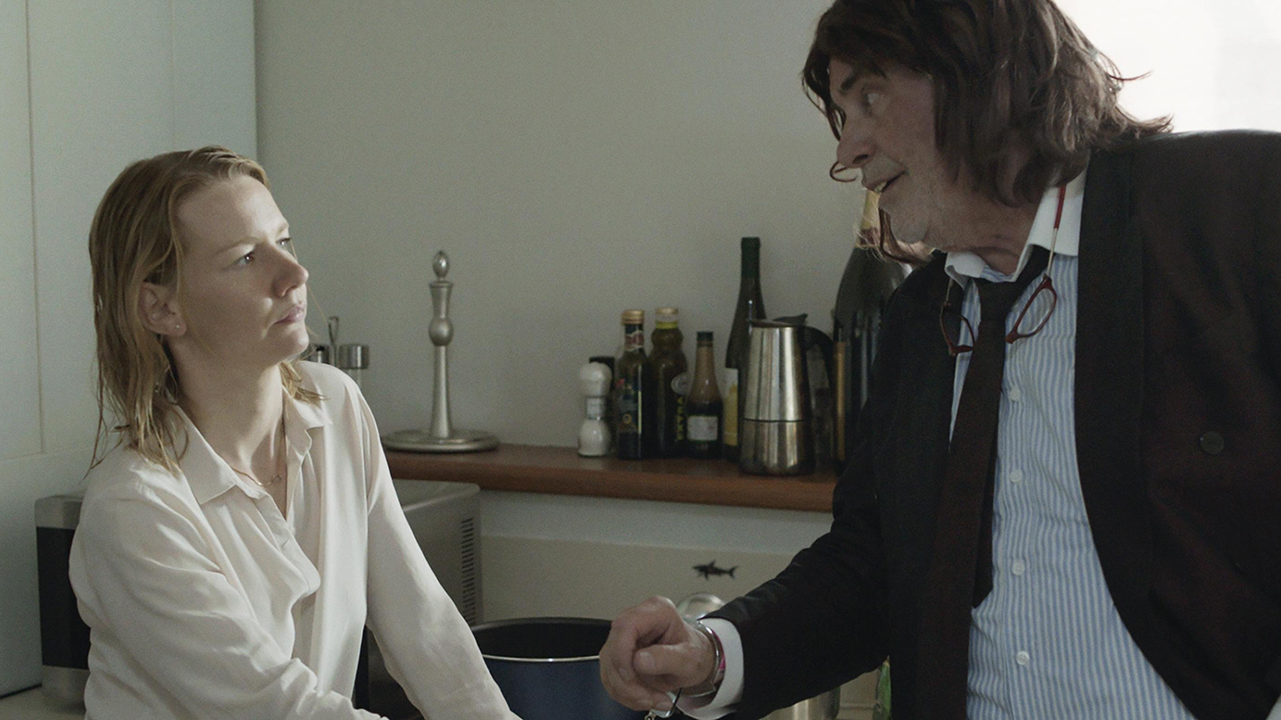Toni Erdmann reaction: Cannes 2016

The fifth film to play in the main competition and the first genuine contender for the Palme d’Or – at least until Andrea Arnold’s American Honey also wowed the next day – this comedy-drama by German writer/director Maren Ade elicited not one, not two, but three rounds of applause, the audience twice breaking into spontaneous ovations during the movie.
Toni Erdmann’s plot would appear, in a nutshell, something of an old chestnut: an estranged father and daughter struggling towards reconciliation. But to boil its near three-hour running time down to a postage-stamp pitch is to ignore its detailed observations of people at work and play, its psychological complexities, and its many fruitful flavours as it shifts from melancholy, anger and bitterness to broad laughs and heart-swelling joy – not in one tidy trajectory towards redemption but rather in loops and zig-zags and figure-eights, with Ade bobbing us up and down until we’re giddy with admiration.
Life, naturally, deals its highs and lows with such casual disregard, and Toni Erdmann initially seems to be a slice-of-life drama. We are first introduced to Winfried (Peter Simonischek), a divorced schoolteacher whose fondness of practical jokes is tolerated by his bemused colleagues. Then daughter Ines (Sandra Huller, terrific) enters the picture, returning from her work in Bucharest – she’s a management consultant who is currently advising an oil company on redundancies – for her birthday. The distance between them is palpable, and it is not about to be bridged by his donning false teeth and a wig in an effort to tease out a smile.
Then something strange happens. Ines returns to Bucharest and Winfried spontaneously decides to follow soon after, again sporting fright wig and tombstone dentures as he lumbers into her work and social circles (which are one and the same) as the larger-than-life “life coach” Toni Erdmann. Mortified, Ines feigns ignorance in front of her acquaintances, the only other option – to introduce this grotesque figure as her father – proving quite unthinkable.
It would all be off-puttingly broad were there not such darkness and pathos at play. Behind the joke-shop grin, Winfried is a dejected figure at best, deranged at worst, stalking his daughter at every turn in a near-sociopathic attempt to introduce a little fun into her life. Ines, equally, is a thrillingly complicated creation, striving to make an impact in her male-dominated profession, engaging in a love life on her own terms and, in her own way, as combative and stubborn as her father. If he is doing all this partly because he spies her suits and clocks her working hours and leaps to that lame male belief that a woman needs a husband and children to truly find fulfilment, then it is conviction that Ade does not endorse. What is happiness and what is behind Winfried/Toni’s gags, her picture asks, while Ines responds to her father’s query as to her contentment by saying, “Happy is a strong word.”
Viewers, however, will surely emerge fully gratified. Ade’s direction is grounded and unostentatious and yet it is impossible not to be dazzled by the assurance on display, while two show-stopping set-pieces – one involving some enforced karaoke, the other a hilariously awkward naked party – will surely be two of the best of the fest.
It is not a question of if Toni Erdmann will win a prize, but rather which one(s) will it be? Actor, Actress, Director and the Palme d’Or are all perfectly feasible.
Bringing all the latest movie news, features, and reviews to your inbox
Jamie Graham is the Editor-at-Large of Total Film magazine. You'll likely find them around these parts reviewing the biggest films on the planet and speaking to some of the biggest stars in the business – that's just what Jamie does. Jamie has also written for outlets like SFX and the Sunday Times Culture, and appeared on podcasts exploring the wondrous worlds of occult and horror.


